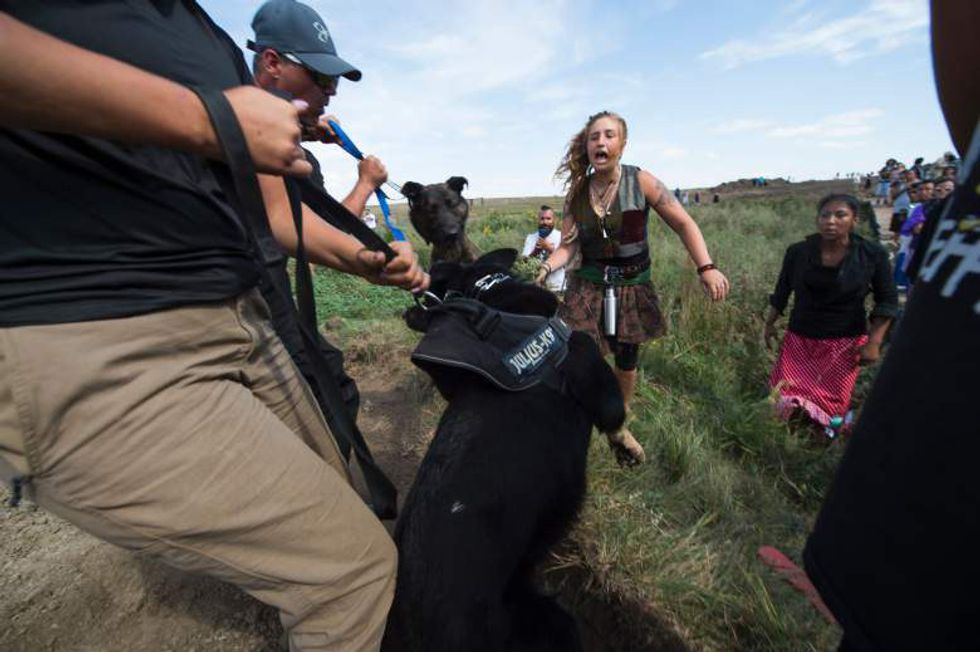It's a 1,172 mile long pipeline that could allow the United States to become less reliant on foreign countries for oil or it could be an environmental disaster, especially for the Standing Rock Sioux Tribe.
The pipeline would run from North Dakota, through South Dakota and Iowa, to Illinois. It would shuttle about 7.4 billion barrels of oil daily and create up to 12,000 construction jobs. The project was approved by the Army Corps of Engineers in July The pipeline was originally planned to pass through the Mississippi River but worries over a spill there caused the pipeline to be shifted through the reservation, without consulting the tribe. The tribe claims that the pipeline will destroy sacred lands including their burial grounds.
Developers of the pipeline claim that it would create a much safer and environmentally friendlier way of transporting oil. However, opposers assert that it will expedite climate change, harm the environment, and harm the way of life for Native Americans. The Midwest Alliance for Infrastructure stated "Once completed, the Dakota Access Pipeline will be among the safest, most technologically advanced pipelines in the world."
Although the project may have many benefits, the Standing Rock Sioux Chairman, David Archambault II, stated that his tribe will settle for nothing less than the stopping of construction. "We're not opposed to energy independence. We're not opposed to economic development. The problem is we have -- and this is a long history of problems that evolved over time -- is where the federal government or corporations take advantage of indigenous lands and indigenous rights."
The tribe and people from all over have taken to the construction sites to protest the pipeline. Protests have been taking place for months and they are determined not to give up. They continuously quote that "water is life" and that the land is owned by nobody, but that they are only "caretakers" of the land. Over 141 people have been arrested at the protests including actress Shailene Woodley. In order to gain control of the crowds, police have used bean bag rounds, pepper spray, high pitched sirens, and attack dogs. During one protest, people broke down a wire fence and began walking over the construction site, just feet away from the bulldozers. The police used aggressive dogs to gain control. The dogs attacked many protestors, including a pregnant woman.
The protests forced a halt to construction in August after the Sioux tribe sued the U.S. Army Corps of Engineers. Also, the Obama Administration asked the Energy Transfer Partners to "voluntarily" halt construction on all surrounding private land. The company refused and resumed construction within 48 hours.
Energy Transfer Partners, CEO Kelcy Warren, said that the company remained "committed to completing construction," also stating that the tribe's concerns were "unfounded." The tribe is no less committed to protecting their sacred lands and water and are determined to to stop the pipeline. They have asked the United Nations Human Rights Council for help and continue to protest with mace in their face and dogs biting at their ankles. The final final fate of the pipeline remains with that U.S. Army Corps of Engineers.
























